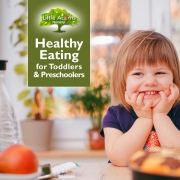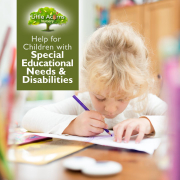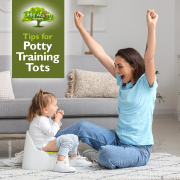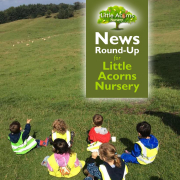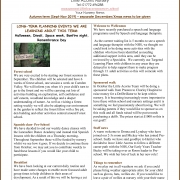THIS is Why Your Child Should Go to Nursery & Pre-school
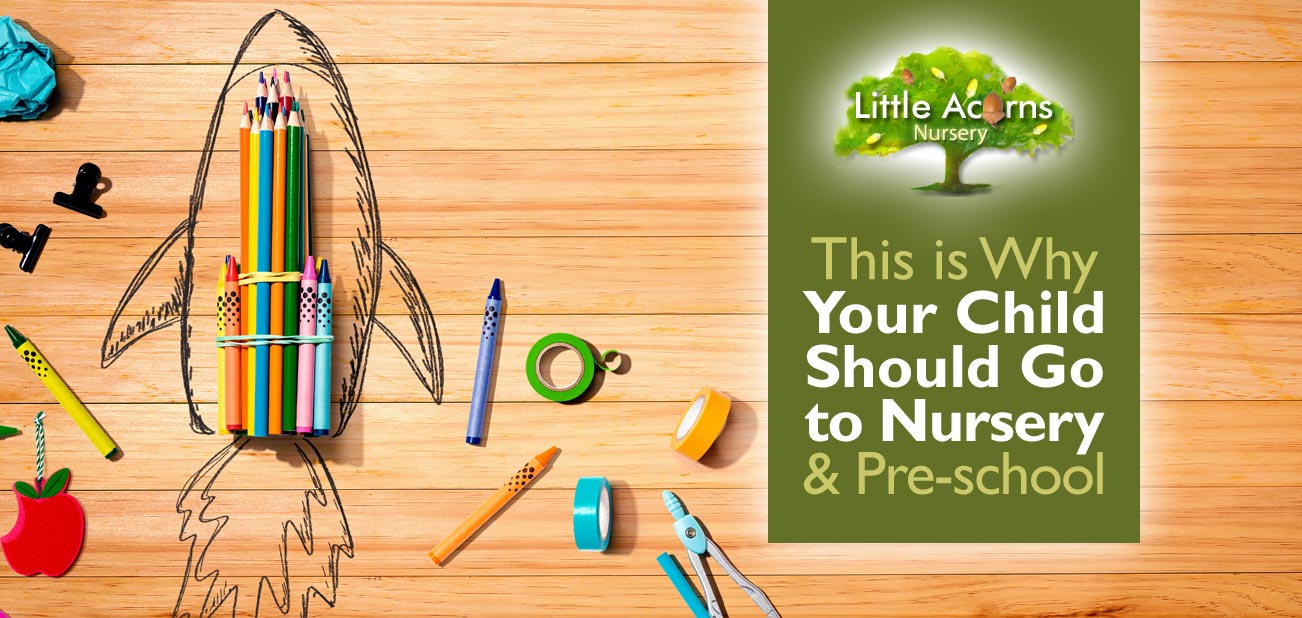
While some parent/guardians simply have to send their little ones to nursery or pre-school, others may be fortunate enough to have a choice. If you are one of them, you may be wondering whether to send your child to nursery or pre-school anyway — even if you don’t need to go to work from a practical or financial perspective. Typical questions parents may ask themselves include:
- Would staying at home be better for my child?
- Or would they be missing out if they don’t attend nursery or pre-school?
- What are the benefits of going to nursery/pre-school for the child?
Well, this article is here precisely to answer those kinds of questions. The overall consensus from experts, though, is that children will benefit enormously by regularly attending a high quality early years setting. Let’s take a closer look.
The Benefits of Nursery/Pre-school to Under-5s
Studies show that the benefits of nursery and/or pre-school to children are most pronounced when they attend a good early years setting. So the choice of provider is an important one and, indeed, one that makes all the difference to the outcomes for a child.
At Little Acorns Nursery in Clayton-le-Woods, Chorley, under-fives are therefore fortunate in that Ofsted rate us as an outstanding childcare and early years provider – in every category. Indeed, Ofsted confirms that children have “outstanding outcomes” at our childcare setting.
Multiple Studies Show Benefits From as Young as 2 Right Into Adulthood
According to a 2020 study by the Department of Education (DfE):
- A good early years education benefits children educationally.
- A good early years education benefits children cognitively.
- A good early years education benefits children behaviourally.
- A good early years education benefits children’s social outcomes in both the long and short term.
A 2002 study1 found that the benefits of a good early years education showed benefits as early as the age of two.
Later, in 2011, another study2 showed that children aged 15 were still benefiting if they’d received a good early years education at nursery, pre-school or other early years setting. The benefits were seen to be so significant that, by the time they reached the age of 15, they were the equivalent of a year ahead in terms of performance.
Another study3 came to similar conclusions in 2018, finding that those children who received a good early years education had improved social skills, improved self-confidence and had a better foundation for success not only at school but also right into older years and the workplace.
Findings of a 13 Year Study
A UK study5, which which followed the progress of children from the age of 3 right up to 16, found a whole raft of positive benefits from a good early years education. Indeed, they were so positive and far-reaching that the findings significantly influenced not only the UK Government’s approach to early years education (including the introduction of the free childcare schemes that we know today for eligible children aged 2 to 4) but also the work of global bodies. These include UNICEF and UNESCO. The long-term benefits of a good early years education, highlighted by the study, included:
- Better grades and number of GCSE levels attained;
- Improved English, mathematics and academic results;
- Better behaviour and self-regulation;
- Improved relationships with peers;
- A lower likelihood of hyperactivity;
- A greater likelihood of going on to higher education;
- Positive benefits right into and during adulthood;
- Improved earnings potential when they’ve progressed to the workplace.
Levelling the Playing Field for Disadvantaged Children
The later DfE study in 2020 also found that disadvantaged children received particular benefits from a good early years education if they attended regularly and for long enough. Benefits were most pronounced when under-twos attended for at least 10 hours per week and 3 to 4-year-olds attended for at least double that. The cumulative effect was to level up the playing field for them to a significant degree. Benefits included improved verbal abilities and better goal attainment, both skills that stand young children in good stead once they transition to school at the age of five.
Benefits to Families & the Nation
While this article is primarily about the benefits of nursery or pre-school to children, we must also make mention of the benefits to families and society in general. For example:
- Households/families benefit as it allows adults to return to work and thereby increase household income, the possibility of upward mobility and, of course, more tax for the exchequer;
- Along with improved education comes lower crime and prison rates, less poverty and reduced reliance on welfare;
- A Chicago study4 concluded the same, also finding that children who had received a good early years education were less likely to suffer from child abuse, neglect, depression and even substance abuse.
A Good Early Years Education Matters
As we can see, study after study recognises the crucial importance of a good early years education for children. The benefits to them are profound and far-reaching. This is no surprise to us at Little Acorns Nursery in Clayton, of course. However, it’s good to see our own beliefs backed-up by the findings of so many illuminating studies, as well as the DfE itself.
Little Acorns Nursery — Outstanding Early Years Education for Under Fives
 Everything we do at Little Acorns is designed to give your baby, toddler or preschooler the very best start in life. Our outstanding, award-winning early years provision ensures that every child learns optimally and develops the skills they need to absolutely thrive. Our approach allows them to achieve personal bests in every area. That’s all just a small part of the exceptional learning and development programme that we offer at our outstanding nursery and pre-school in Clayton-le-Woods, Chorley, in Central Lancashire. If you’d like to explore the possibility of your baby or under-five child attending the nursery and benefiting from the very best childcare available, please get in touch:
Everything we do at Little Acorns is designed to give your baby, toddler or preschooler the very best start in life. Our outstanding, award-winning early years provision ensures that every child learns optimally and develops the skills they need to absolutely thrive. Our approach allows them to achieve personal bests in every area. That’s all just a small part of the exceptional learning and development programme that we offer at our outstanding nursery and pre-school in Clayton-le-Woods, Chorley, in Central Lancashire. If you’d like to explore the possibility of your baby or under-five child attending the nursery and benefiting from the very best childcare available, please get in touch:
References: 1: Sammons et al. 2002 | 2: The OECD, 2011 | 3: Sim, 2018 | 4: Chicago Longitudinal Study funded by the U.S. National Institute of Health (NIH) | 5: The Effective Pre-School, Primary & Secondary Education (EPPSE) study.

